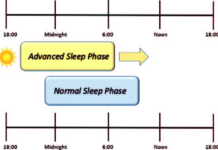Cancer-related fatigue (CRF) is a common and often debilitating symptom experienced by individuals with cancer. It is characterized by a persistent sense of tiredness or exhaustion related to cancer or its treatment, which is not proportional to recent activity and interferes with usual functioning.
Symptoms
The symptoms of cancer-related fatigue can vary but often include:
- Persistent tiredness or exhaustion
- Weakness
- Lack of energy
- Difficulty concentrating or focusing
- Reduced motivation and interest in activities
- Sleep disturbances
- Emotional symptoms like irritability, frustration, or depression
Causes
The exact cause of CRF is multifactorial and can include:
- Cancer Itself: Tumor-related factors such as the release of certain cytokines and other substances can contribute to fatigue.
- Cancer Treatments: Chemotherapy, radiation therapy, surgery, immunotherapy, and other treatments can cause fatigue through a variety of mechanisms.
- Anemia: A common side effect of both cancer and its treatments.
- Nutritional Deficiencies: Cancer and its treatments can affect appetite and nutrient absorption.
- Sleep Disturbances: Pain, anxiety, and other factors can disrupt sleep.
- Emotional Distress: Anxiety, depression, and stress related to cancer diagnosis and treatment.
- Comorbid Conditions: Other health conditions, such as infections or chronic diseases, can contribute to fatigue.
Treatment
Managing cancer-related fatigue involves a comprehensive approach that may include:
- Medical Interventions:
- Treatment of underlying conditions such as anemia or hormonal imbalances.
- Pain management.
- Medications such as stimulants or antidepressants in certain cases.
- Lifestyle Modifications:
- Exercise: Regular, moderate physical activity has been shown to reduce fatigue and improve overall well-being.
- Nutrition: Eating a balanced diet and addressing any nutritional deficiencies.
- Sleep Hygiene: Establishing a regular sleep routine and addressing factors that disrupt sleep.
- Psychological Support:
- Counseling or therapy to address emotional and psychological factors.
- Stress management techniques such as mindfulness, relaxation exercises, and meditation.
- Energy Conservation Techniques:
- Planning activities to make the best use of energy levels.
- Taking frequent breaks and pacing oneself.
Prevention
While it may not be possible to prevent cancer-related fatigue entirely, some strategies may help reduce its severity:
- Maintaining a healthy lifestyle with regular exercise and a balanced diet.
- Getting adequate rest and practicing good sleep hygiene.
- Managing stress through relaxation techniques and seeking support when needed.
- Communicating with healthcare providers about any symptoms of fatigue early on to address them promptly.
By employing a combination of these strategies, individuals with cancer can often find ways to manage and alleviate the effects of cancer-related fatigue, improving their quality of life during and after treatment.

































